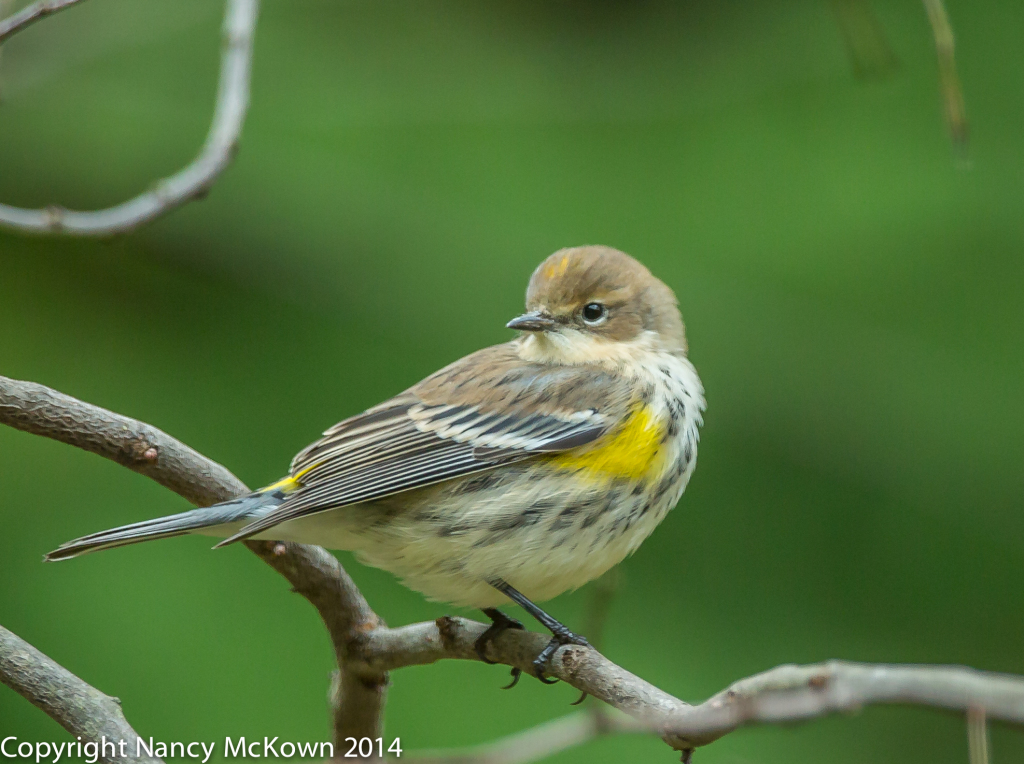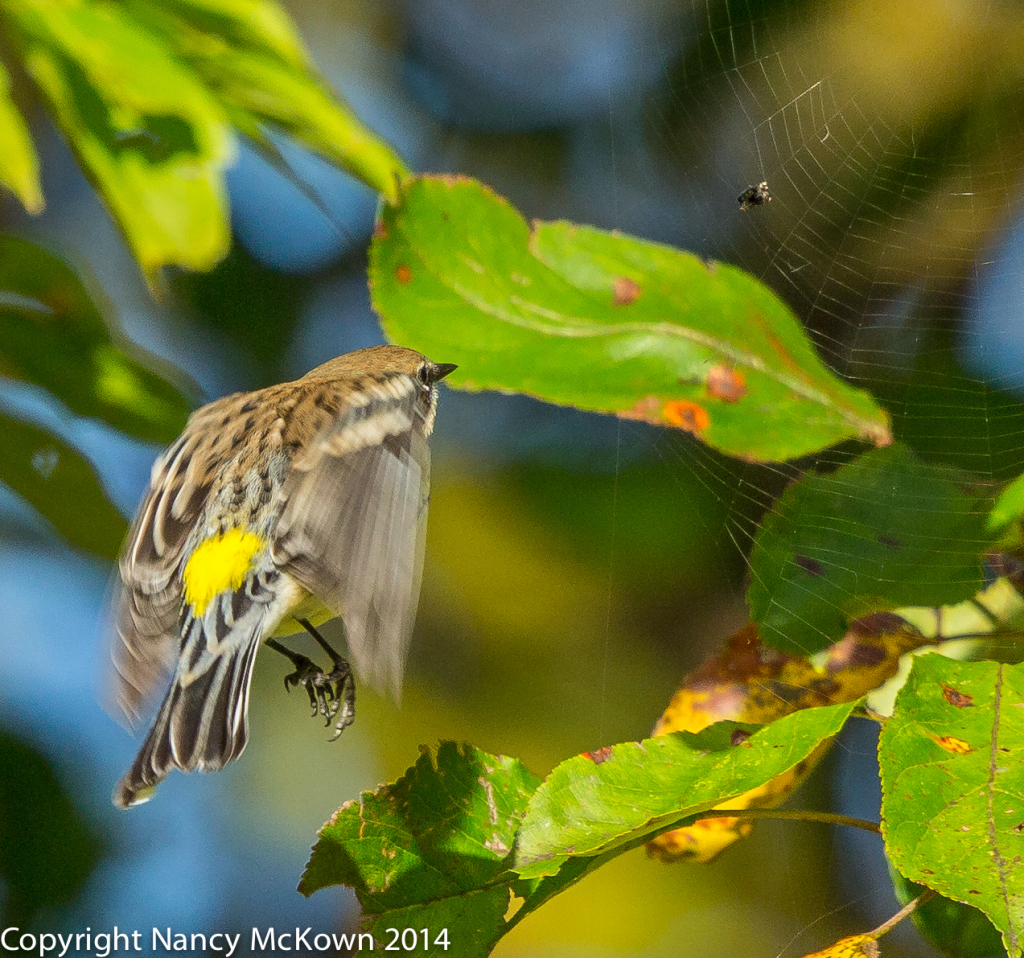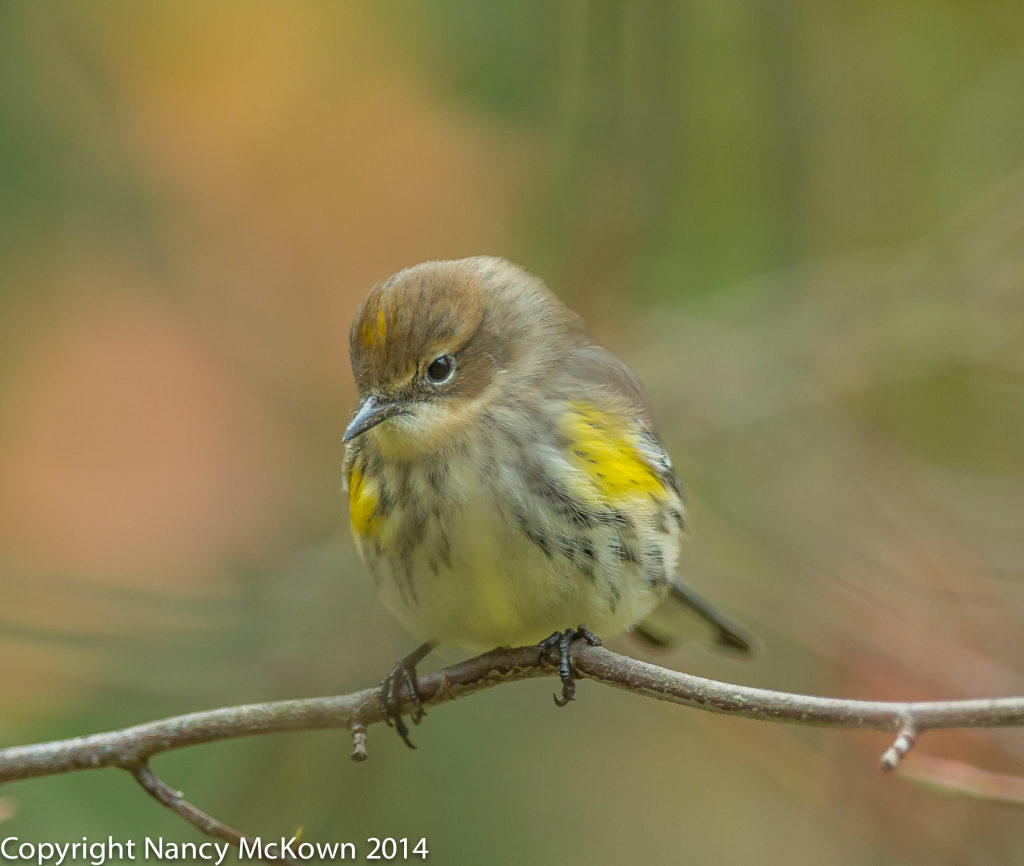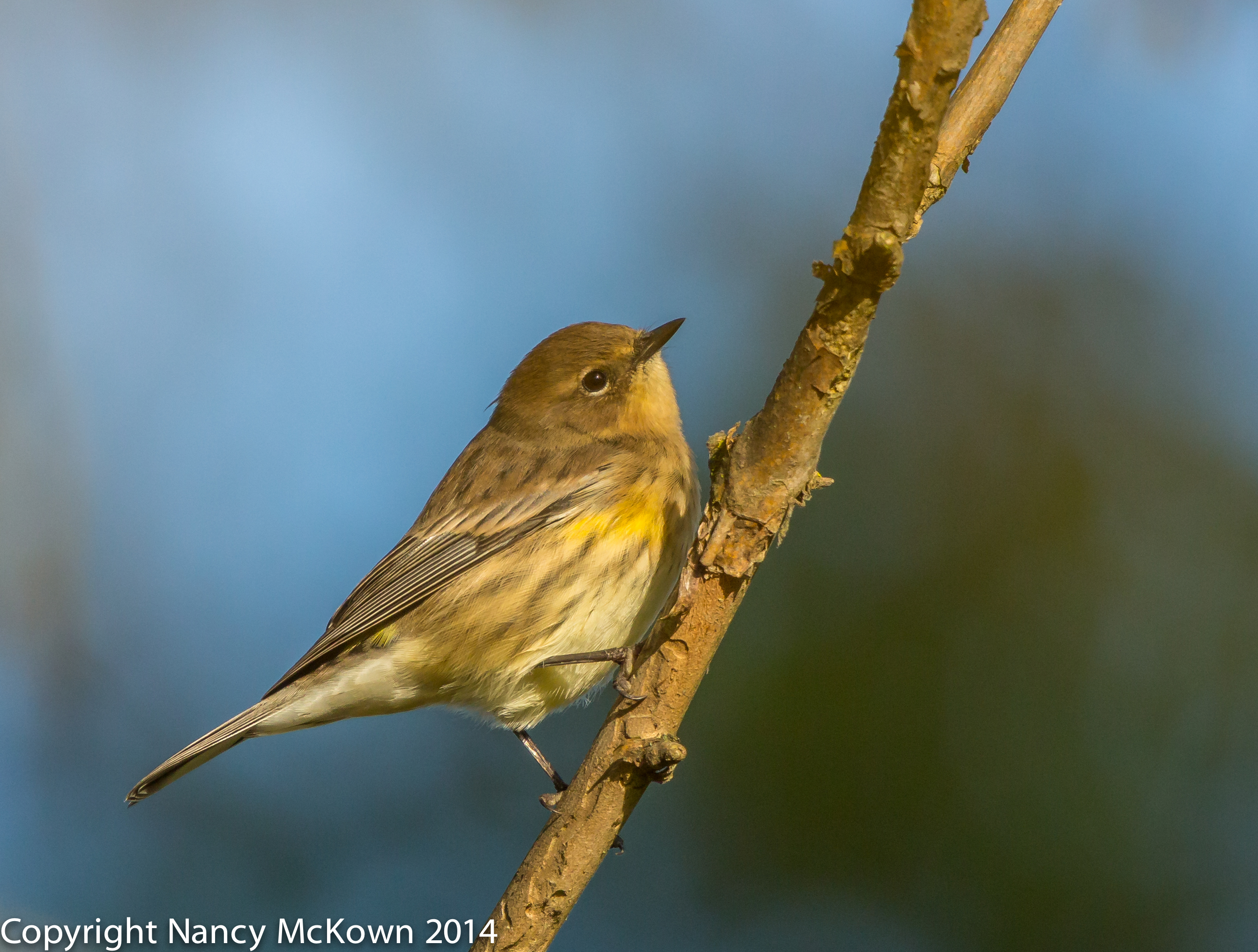Photographing Yellow Rumped Warblers
It’s early November, frosty and cold, and most of the warblers are long gone from our yard. The Yellow Rumped Wood Warblers linger, seemingly not in a hurry to get to their wintering grounds.
Best of all, they don’t seem to mind posing for the camera.

Affectionately known as Butter Butt.
ISO 1000; f/4; 1/400 Second
Posing for the Camera
I had no trouble finding and photographing Yellow Rumped Warblers this summer. These venturous birds seemed to be everywhere, boldly and conspicously going about their business and ignoring me. Clutches of them, all flashing their bright yellow tail feathers, could be found searching for insects and berries in the low lying dense foliage. It was a photographer’s dream.
Butter Butts
These perky little warblers nest mostly in northern climates, so they are used to the brisk, November weather. I’ve seen a half dozen or so of them in my yard, flitting about on the leafless branches in search of insects. Seeds and berries are plentiful when the insects are gone. Of all the warblers, Butter butts are hardy enough to survive the Michigan winter. Once in a while, I’ll spot one as the snow flies. I have never seen them take advantage of the free meal at our feeders.
This time of year, these warblers can look quite drab -pale shades of brown. They are easy to identify with that bit of a yellow patch on each side of its body (in front of the wings) and their most identifiable feature, a bright yellow rump.

ISO 640; f/10; 1/640 Second

ISO1000; f/4; 1/400 Second
First to Arrive and Last to Leave
One morning soon I will wake and the Yellow Rumped Warblers will be gone. One of my many goals in the Spring is to photograph a male, all decked out and flashing his bold and bright yellow, charcoal, and blue/black/white feather finery. The Butterbutts are one of the first species of warbler to come through Southwest Michigan in the Spring. If I’m watchful, I’ll probably get my chance in March.
To take a look at photos of the other warblers that have come through our yard during this Fall’s migration (some starting in July!), visit this link.









